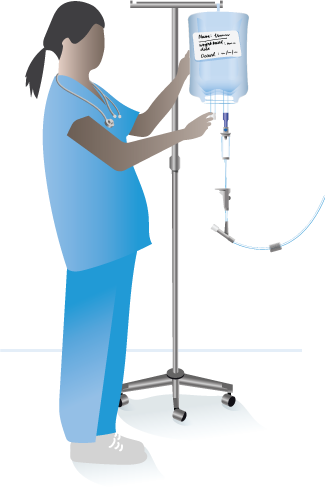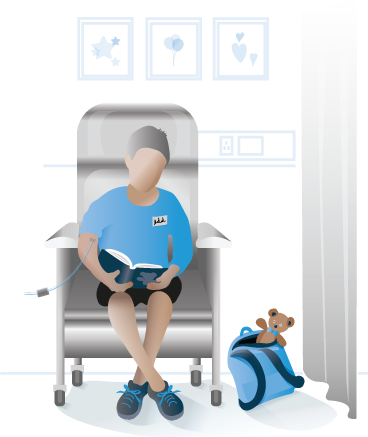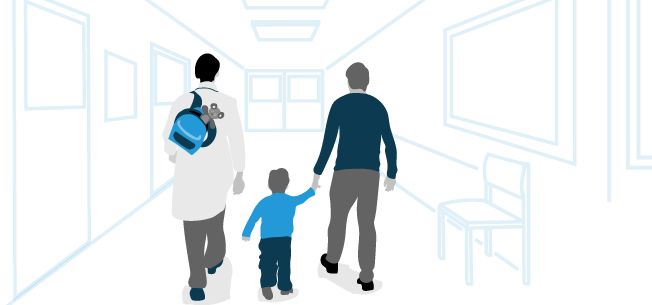RISK OF SERIOUS ALLERGIC REACTIONS
Some patients have experienced serious allergic reactions (including life-threatening
anaphylactic reactions) during and up
to 24 hours after treatment, regardless of how long they were taking ELAPRASE. Anaphylactic
reactions are immediate and
include breathing problems, low oxygen levels, low blood pressure, hives and/or swelling of the
throat or tongue. If a patient
(you or your child) has experienced an anaphylactic reaction, the patient may require an extended period of observation by
the patient’s healthcare team. If you or your child has breathing problems, a fever, or a respiratory illness, you or your child
may be at risk of life-threatening worsening of those conditions due to allergic reactions from ELAPRASE. Your healthcare
team should be advised of those conditions before treatment with ELAPRASE because the information may affect the timing
of ELAPRASE treatment.
You or your child should be closely watched during and after ELAPRASE treatment and you should confirm with your healthcare
team in advance of treatment that it is prepared to manage serious allergic reactions, including anaphylactic reactions.
Tell your
healthcare team immediately if any signs of an allergic reaction happen.
Those signs may include breathing problems, low
blood pressure, rash, hives, itching, flushing, fever and/or headache.
When serious allergic reactions happened during clinical trials, later ELAPRASE treatments were managed with allergy-controlling
drugs before or during treatment, a slower rate of ELAPRASE treatment, and/or early discontinuation of treatment.
Children with serious genetic mutations may be at risk for allergic reactions, serious side effects and antibody development.
In a clinical study of children 7 years and younger, patients with certain types of genetic mutations experienced a higher number
of allergic reactions, serious side effects, and development of an immune response to treatment. This immune response may
interfere with the effectiveness of ELAPRASE. Talk to your healthcare team about whether you or your child may be at risk.
If you or your child has breathing problems, other respiratory illness, heart problems, or susceptibility to fluid overload, you or
your child may be at higher risk of fluid overload during ELAPRASE treatment.
Your healthcare team should be advised of those
problems before treatment and you should confirm with your healthcare team in advance of treatment that it is appropriately
trained to watch for signs of fluid overload and provide the necessary medical support. Patients at risk for fluid overload may
require longer observation time.
What are possible side effects of ELAPRASE?
The most common side effects of ELAPRASE include:
-
In patients aged 5 and older:
- - Headache
- - Itching
- - Muscle and bone pain
- - Hives
- - Diarrhea
- - Cough
-
In patients aged 7 years or younger:
- - Fever
- - Rash
- - Vomiting
- - Hives
The most common side effects needing medical attention were allergic reactions, and included rash, hives, itching, flushing,
fever, and headache. Tell your healthcare team immediately if any signs of an allergic reaction happen. These are not all the
possible side effects of ELAPRASE.
What is ELAPRASE® (Idursulfase)?
ELAPRASE is a prescription medicine for patients with Hunter syndrome. ELAPRASE has been shown to improve walking ability in patients 5 yrs and older. In patients 16 months to 5 yrs old, ELAPRASE did not show improvement in disease-related symptoms or long term clinical result; however, treatment with ELAPRASE has reduced spleen size similarly to patients 5 yrs and older. It is not known if ELAPRASE is safe and effective in children under 16 months old.






